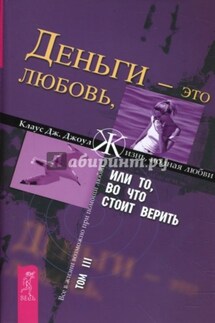The General Theory of Capital: Self-Reproduction of Humans Through Increasing Meanings - страница 35
“…Historical analyses of scientific and technological change suggest that cultural change is not quite so directed, and foresight not quite as accurate, as commonly assumed. Historical figures often claim retrospectively to have guided cultural change in particular directions, yet such claims may have the benefit of hindsight and be self-servingly exaggerated. However, there is a general lack of systematic evidence regarding this issue, at least compared to the careful experiments conducted by Luria and Delbrück in biology. We should therefore be prepared to accept that cultural evolution may, at least in some instances, be directed rather than blind and that there is a valid difference here between cultural and biological evolution” (Mesoudi 2011, p. 46). [Luria and Delbrück’s experiments in the 1940s showed that mutations in bacteria are not the result of selection pressure, but occur by chance.—A.K.]
So, is any new meaning a matter of chance? Henry Quastler once posed this question as follows: “How does one know that at least some new information has emerged or that the new work is more than a rearrangement, according to existing laws, of previously existing patterns?” (Quastler 1964, p. 17).
We showed above that a meaning s can be reduced to a minimal action s*. A minimal action is the shortest description of a meaning that allows its reproduction. Obviously, a new meaning emerges if it cannot be reduced to another meaning. It is known from information theory that the closer the length of string s is to the length of the minimal action s*, the more random the meaning is: “Among all the descriptions of s, there is a shortest one called s*, and the length of s* is the algorithmic entropy K(s). This led to a neat definition of randomness: A string s is random if it has no description much shorter than itself. Its entropy is about equal to its own length: K(s) = L(s*) ≈ L(s)” (Schumacher 2015, p. 240).
Any truly new information is therefore random and unpredictable. However, new information is not yet new meaning. Through their actions, people strive not only to create new information, but also to satisfy their needs. Meaning is not only determinateness or certainty, but also direction. New information must be inscribed in the existing culture in order to make sense. Any new meaning is both random and necessary. Quastler sees this as the answer to his question:
“The answer may be in the composer Pierre Boulez’s definition of artistic creation: ‘To make the unpredictable inevitable.’ To restate this beautifully succinct saying: if there is a truly new element in a work, then it should have been quite impossible to predict this element beforehand, on any basis; if the work is to be successful, then this unpredictable element must acquire the unavoidability of a law” (Quastler 1964, p. 17).
Meanings arise by chance and are transmitted by necessity. All meanings are accidental, but once established they become the norm. Quastler calls this “random and remembered choice.” “The ‘accidental choice remembered’ is a mechanism of creating information and very different in nature from mechanisms of discovering information” (Quastler 1964, p. 16).
If meanings evolve on their own, and not through human agency, then is not all culture the result of the evolution of meanings, their random changes, and selective retention? The stage of mixed natural and cultural selection lasted for hundreds of thousands, perhaps millions of years; the stage of traditional choice lasted for thousands or tens of thousands of years. During this period, proto-human and early human populations self-reproduced by collective rather than individual action. Collective existence overshadowed the lives of individuals, their plans, and their destinies. Alfred Kroeber wrote that looking back over thousands of years of history, one might come to believe that hidden forces control individuals who have no influence over their lives:







